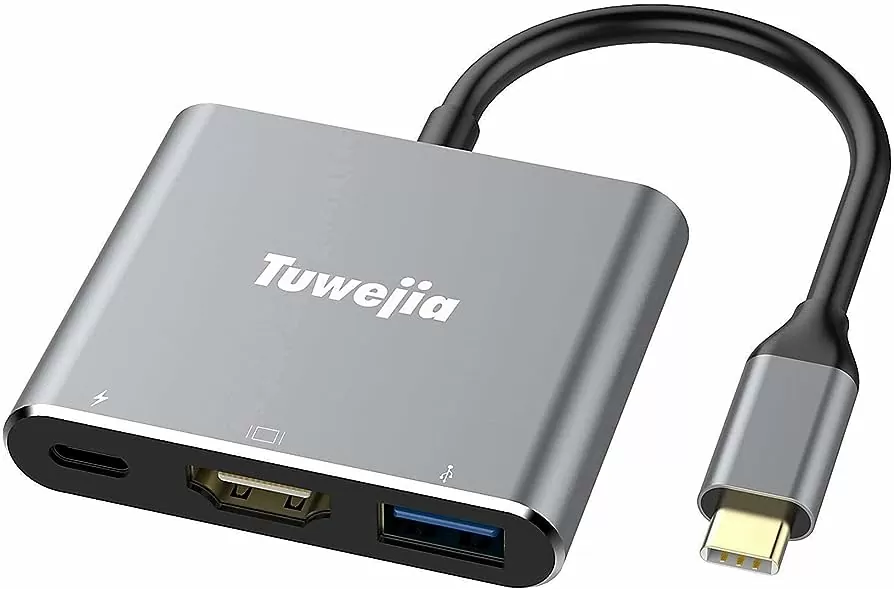How does a USB-C to USB 3.1 Gen 1 to HDMI adapter work?


USB-C to USB 3.1 Gen 1 to HDMI adapters have become increasingly popular in recent years due to their ability to connect devices with USB-C ports to HDMI displays. These adapters provide a convenient solution for users who want to extend their video output capabilities and connect their devices to external monitors or high-definition displays. In this article, we will explore how USB-C to USB 3.1 Gen 1 to HDMI adapters work, their compatibility, and the benefits they offer.
Understanding USB-C to HDMI Adapters
USB-C to HDMI adapters are small devices that allow you to connect a device with a USB-C port to an HDMI display. They convert the video signal from the USB-C port into an HDMI signal, enabling you to mirror or extend your device’s screen onto a larger display. These adapters are particularly useful for laptops, tablets, and smartphones that lack an HDMI port but have a USB-C port.
How USB-C to HDMI Adapters Work
USB-C to HDMI adapters utilize the USB 3.1 Gen 1 standard to transmit video signals from the USB-C port to the HDMI display. The USB 3.1 Gen 1 standard supports data transfer rates of up to 5 Gbps, which is sufficient for transmitting high-definition video signals. The adapter converts the video signal from the USB-C port into an HDMI signal, allowing it to be displayed on an HDMI monitor or TV.
Adapter Compatibility
USB-C to HDMI adapters are compatible with a wide range of devices that have a USB-C port, including laptops, tablets, smartphones, and even some gaming consoles. However, it is important to note that not all USB-C to HDMI adapters are compatible with every device. Some adapters may only work with specific devices or operating systems, so it is essential to check the compatibility of the adapter with your device before purchasing.
Audio Support
In addition to video output, USB-C to HDMI adapters also support audio transmission. This means that when you connect your device to an HDMI display using the adapter, the audio from your device will also be transmitted to the display. This eliminates the need for separate audio cables and provides a seamless audio-visual experience.
Benefits of USB-C to HDMI Adapters
USB-C to HDMI adapters offer several benefits that make them a popular choice among users:
- Expanded Connectivity: These adapters allow devices with USB-C ports to connect to HDMI displays, expanding their connectivity options.
- High-Definition Display: USB-C to HDMI adapters support high-definition video output, ensuring that the content displayed on the external monitor is crisp and clear.
- Easy Setup: Using a USB-C to HDMI adapter is a simple plug-and-play process. Just connect the adapter to your device’s USB-C port and the HDMI cable to the adapter and the display, and you’re ready to go.
- Portable and Lightweight: USB-C to HDMI adapters are compact and lightweight, making them easy to carry around and use on the go.
- Versatility: These adapters can be used with a variety of devices, including laptops, tablets, and smartphones, making them a versatile solution for different users.
Conclusion
USB-C to USB 3.1 Gen 1 to HDMI adapters provide a convenient way to connect devices with USB-C ports to HDMI displays. By converting the video signal from the USB-C port into an HDMI signal, these adapters enable users to extend their video output capabilities and connect their devices to external monitors or high-definition displays. With their compatibility, audio support, and numerous benefits, USB-C to HDMI adapters have become an essential accessory for many users seeking enhanced connectivity and a better viewing experience.
Recent Posts
How do I create an engaging and informative online quiz or assessment?
Creating an engaging and informative online quiz or assessment can be a powerful tool for… Read More
What are the most effective methods for managing and reducing work-related stress in the hospitality industry?
Work-related stress is a common issue in the hospitality industry, where employees often face long… Read More
How can I improve my assertiveness and communication skills in a leadership position?
In a leadership position, assertiveness and effective communication skills are crucial for success. Being able… Read More
What are the key elements of a successful employee recognition and rewards program?
Employee recognition and rewards programs play a crucial role in motivating and engaging employees, as… Read More
How do I effectively manage and respond to customer feedback and reviews?
Customer feedback and online reviews play a crucial role in shaping a company's reputation and… Read More
What are the best strategies for effective time management as a stay-at-home parent?
Effective time management is crucial for stay-at-home parents who juggle multiple responsibilities on a daily… Read More